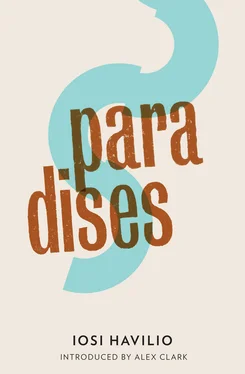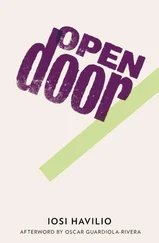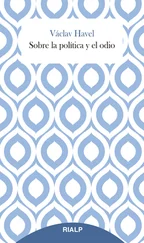Jaime died at the start of spring. Someone who didn’t see him, or who caught sight just too late to swerve and avoid him, ran him down as he was changing a tyre at the side of the road. From the skid marks, it was thought to have been a lorry, but it could have been a bus or one of those big four-by-fours. And he was left there, lying between the tarmac and the verge for several hours, until around midnight, when a family collecting cardboard to make a few pesos discovered him and notified the police. And even though I saw him in the coffin just the other day, I have a clear picture in my mind that he was found on his back, eyes wide open, looking more drunk than dead.
I didn’t have to take care of anything. Héctor, Jaime’s brother, dealt with it all. He went to the morgue to identify the body, dropped in to the police station, took care of all the formalities for the insurance, arranged the wake and transport of the body with the funeral parlour. All very swiftly, as if it had been planned. First, a policeman who had known Jaime since childhood notified Héctor, who in turn called me at dawn, the time of day when this type of news tends to arrive. It’s terrible, he said, I can’t believe it. I didn’t know how to reply, having forgotten about the possibility of death. Not Jaime’s death or mine, or that of anyone in particular, but Death as a whole. Hello, hello, Héctor repeated and then I let out a Yes, it’s terrible, my eyes on Simón as he slept sprawled out in Jaime’s place. Then I kept still, as still as a person can be, looking without seeing, at the furniture, the high ceiling, the spiderwebs, getting nowhere with the questions about life that were filling my head.
The night of the accident, it didn’t strike me as strange that Jaime didn’t come home to eat, but for the fact that he didn’t let me know. Recently he had become addicted to his mobile phone; he used it all the time, under any pretext, to ask me whether I’d had lunch, pretending he’d forgotten something, to let me know a storm was approaching, always needlessly. In fact, on the phone he seemed like someone else — expressive, self-assured, almost a modern man. I went to bed convinced that inebriation had caught him early. An inoffensive habit that he indulged once or twice a week. At best, he would stagger home, his breath rancid, effing and blinding to no one in particular, and disappear into the woods to vomit. Other times, he would find some open piece of ground and lie back in the front seat of his pickup until he was less plastered. That’s how he described it, plastered. Once, a breakdown truck had to drag him out of a ditch. I remember the expression on his face when he got out to open the gate, equal parts shame and mud. I also remember the breakdown guys brazenly making fun of the old man.
The wake started just after eight, the day after the accident. The funeral home was just a few blocks from the Basilica of Luján, three floors of granite facade with long balconies and tinted glass. At half seven a taxi ordered by Héctor came to get us. A white car, shining white, with black lights inside and a mini-bar that seemed nothing more than a prop, not at all like a funeral car. Five minutes into the journey, Simón was asleep. It wasn’t surprising; he had skipped his siesta, running around all day with unusual energy. I made him comfortable on the seat, curled up with his head in my lap, and I abandoned myself to the scenery.
I had made this trip so many times with Jaime, coming and going, to the vet, to the shopping centre, to the railway station. The very road where the accident had taken place, more or less halfway between Open Door and Luján. By the Camel sign, Héctor had told me on the phone. And although I was looking carefully, forehead pinned to the glass, I couldn’t see anything, no marks, no bloodstains, nor the pickup, which must have already been towed away. Too late: when we were almost on top of it, I recognised the giant, muscular camel posing with a cigarette in its mouth.
At some point in the journey, I wondered whether the taxi driver, a very young, dark-haired lad, knew about us, that we were in mourning, about the tragedy. Whether he knew he had gone to pick up the wife and child of someone who had just died, that this wasn’t just any old trip. I’ll never know; we didn’t exchange a single word and the tuneful FM station he was playing at a very discreet volume allowed for either possibility.
We had to go round the houses to get there. A spring rock concert had been organised in front of the cathedral. The event was announced with overhead banners every two or three blocks: 21st September 5pm 21 Bands. We went round the perimeter of the plaza along side streets, held up in a bottleneck that was unusual for a place like this. The driver, one hand on the wheel, the other arm hanging out of the window, sighed several times in protest. The third time, he caught my eye in the rear-view mirror in search of complicity, a comment, or perhaps not, perhaps just apologising. I didn’t know what to say so I ignored him and kept my eyes fixed on the cars around us. A twenty-minute delay. In the background, the high and low notes of guitars and basses competed with car horns.
At the door of the funeral parlour, I could make out Jaime’s twin nephews from afar. Like two soldiers, more twin-like than ever, as if the occasion of their uncle’s death had forced them to emphasise their natural similarity: both dressed in grey suits, almost certainly school uniform, the same hair and fringe, truly identical. I hadn’t seen them for a long time, which must have been why they greeted me distantly, raising their hands rather than moving to kiss my cheek. Or perhaps because the situation made them uncomfortable and they hoped to go unnoticed. Too many changes of position forced Simón awake and there in front of them he opened his eyes, teary but not actually crying, looking for something around him.
That was when it first occurred to me that sooner or later I should try to find some way of telling him what had happened. I had spent the entire day attempting to organise a whole series of thoughts, past and future, relating to Jaime, to me, to the house, to life in Open Door and at no point had it entered my head that I needed to talk to Simón; the more distant and distracted he was the better. Now it was late, I had to surrender to what was coming, I would think about it tomorrow. Anyway, time and Jaime’s absence would take care of explaining better than me.
After greeting the twins, I don’t know why, perhaps intimidated by their rigid posture, I avoided the main door and entered through the garage. I moved forward with Simón in my arms, in near darkness, between a small ambulance, a quad bike and a barbecue that still contained ashes from lunchtime. Instead of retreating, which would have been the sensible thing to do, I grasped the handle of a panel door and surprised two girls painting their toenails in front of a giant television. Sorry, I began to say, and vaguely waved a finger in the air. Not so much unwilling as in a state of absolute sloth, one of the girls, shaven-headed and wearing a sleeveless top, stood on her heels and gestured to another door, next to a string of garlic bulbs hanging from a hook. Go through there and climb the stairs.
We enter another room, not as dark as the first but definitely much more frightening, with a row of coffins standing on end, leaning against the walls like resting totems. Show coffins, waiting for their time. I follow a light and we finally come out in the foyer of the funeral parlour. We appear at the foot of a wide staircase, once again face to face with the twins, who have abandoned the door and are now guarding their father, eyes swollen with exhaustion.
Читать дальше











